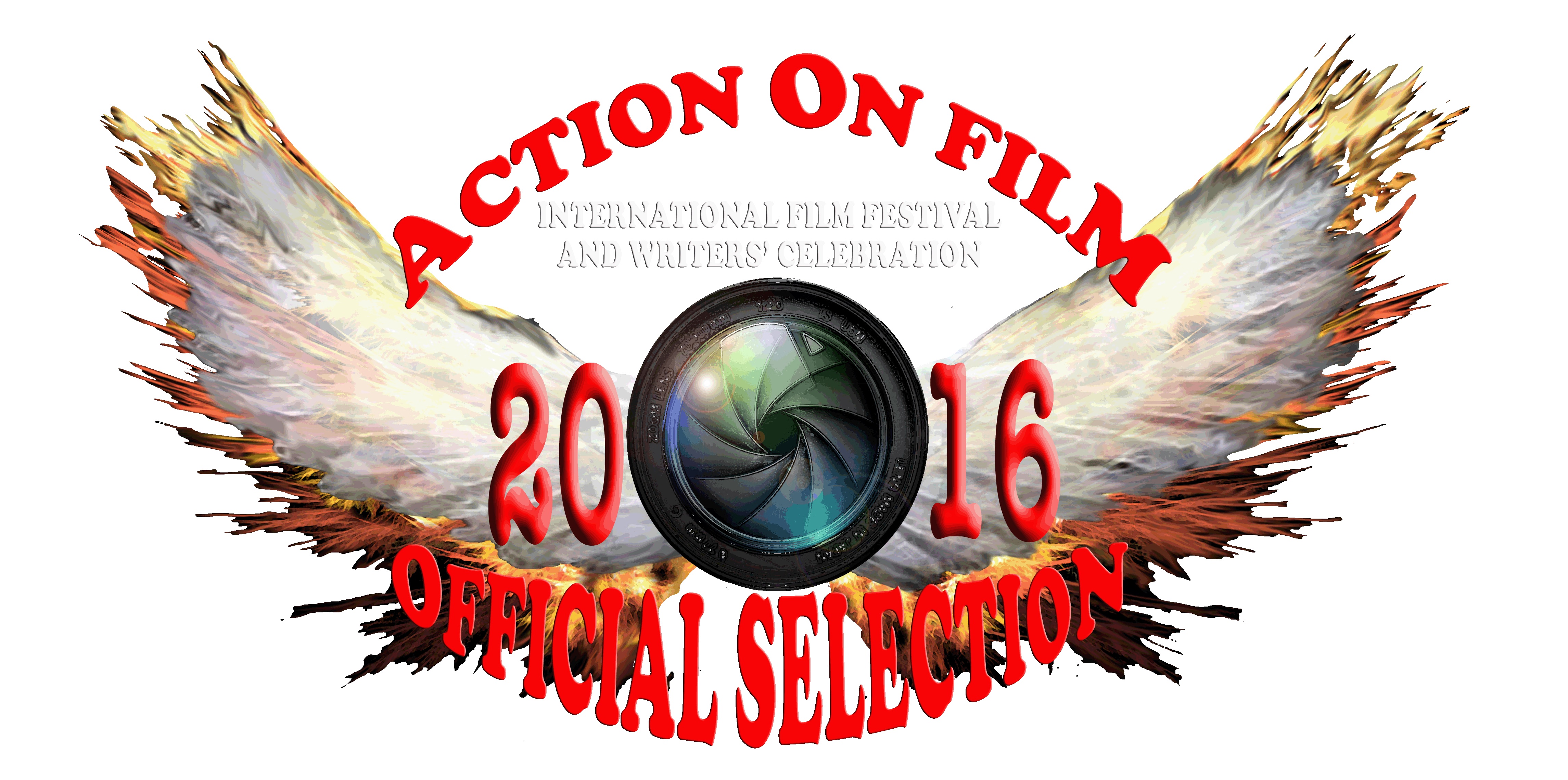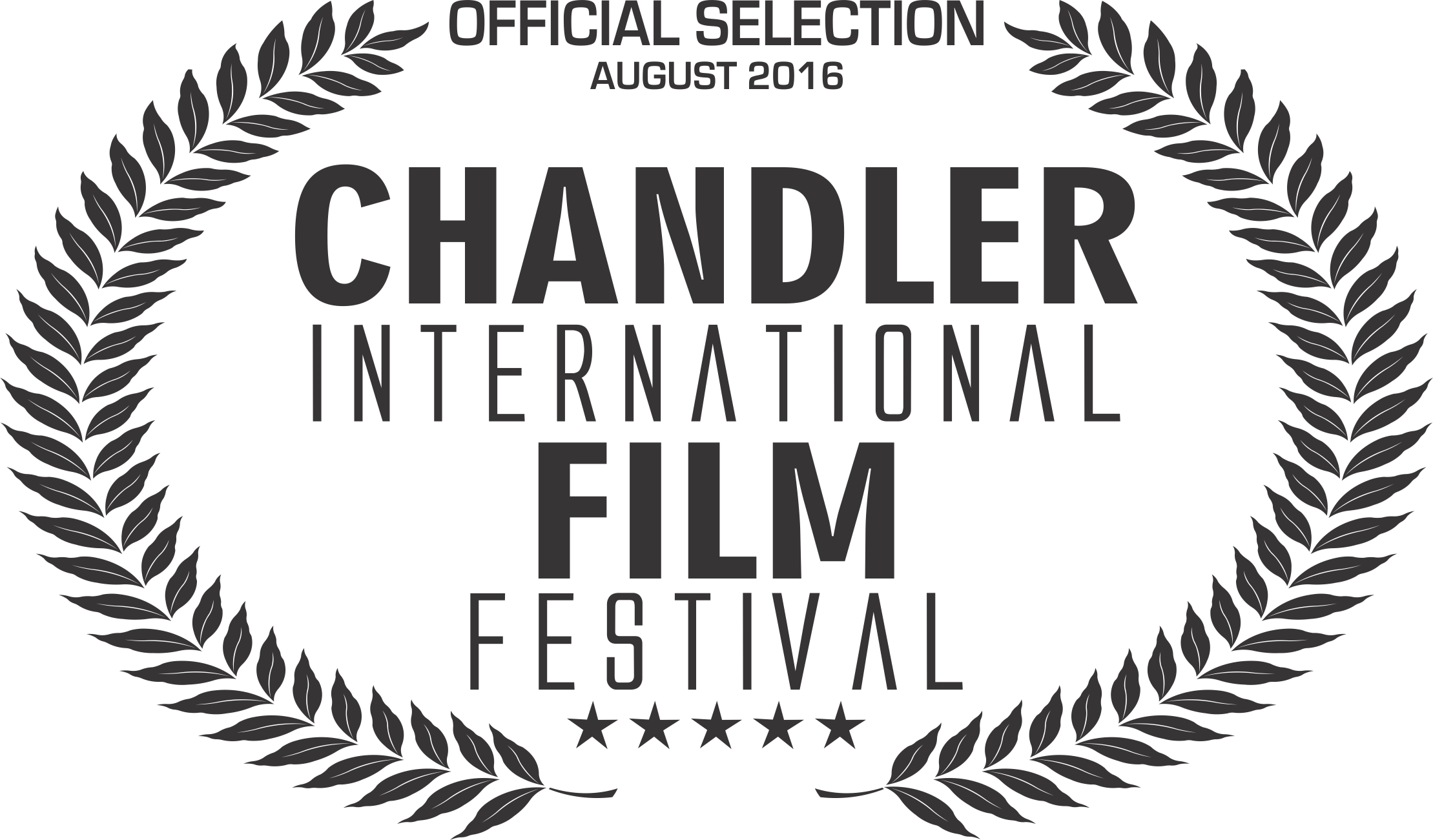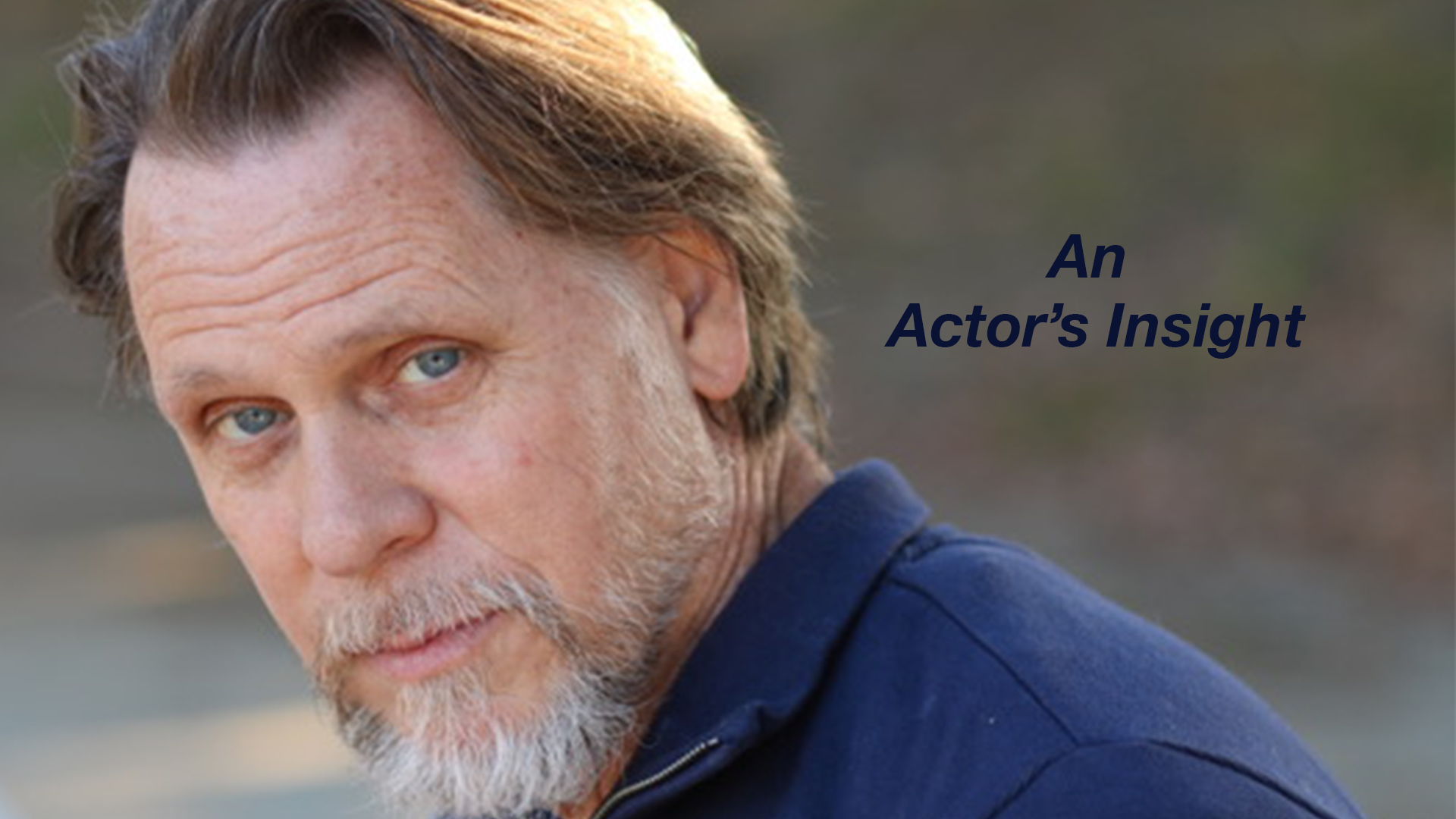SSP STAFF WRITER: ENTERTAINMENT ZONE: March 3, 2019
It’s Hollywood’s most wonderful time of the year – Awards season! The town is a buzz with parties, galas, nominees and winners. For a select few of those nominees, this is their first time at the big dance and the industry speculates on which newbie will be the next breakout talent. Well, before they ever became an industry speculation, they were just a human with a dream of creating art through film. One of those such humans hoping to be a future industry speculation is Massimo Bordonaro.
Massimo, how did you become apart of tinseltown?
I’m a bit of an anomaly in the movie business, and one of those rare people who was born in Los Angeles, raised in Los Angeles, and still lives in Los Angeles. I pretty much grew up on various sets in the movie business. Both of my parents are from Sicily, Italy. Now retired, my father Umberto was an I.A.T.S.E. Local 44 Propmaker. My mom Rita is an active I.A.T.S.E Local 706 hairstylist. She’s been nominated for 3 Emmys. At this point in my career, I consider myself an accomplished Cinematographer, Steadicam and Camera Operator. These days I also pride myself on being a “Camera Stabilizer Technician” when it comes to balancing cameras on a wide variety of tools we have at our disposal today, including Steadicam, Easy Rig, Movi/Ronin, drones, etc. I’m also curious about more directing work as well, with my first short film “Caged” (2016) winning 7 awards, and being nominated for 6 others. Not bad right out of the gate as a first-time Director, ya?
Was there a particular event or time that you recognized that directing was not just a hobby, but that it would be your life and your living?
1997. I was on a 3 Day backpacking trip through Joshua Tree with a group of about 35 people. There was no clear leader, hardly any communication, and the few people that were taking the initiative to lead were failing miserably. I knew I could do a better job at communication, delegating of Duties, and steering the ship. I called for a timeout, and had everybody gather around a map. I picked out the best people who were good at navigation, to pinpoint where we were. The Next Step was to figure out where we as a group had to go to in order to set up the first night’s camp. At that point, I assessed the group’s health and physical ability. I then worked with the people good at map navigation to plan a route of least resistance. There would be lots of climbing and bouldering involved, not just walking through flat Terrain. Then, I assigned a person, a Midway relay person, and a tail Gunner so to speak to keep the herd on the same path. After a quick group meal, the exact route, and path were communicated to everyone in the group.
How did you get involved in CAGED and why?
It was a Craigslist ad, believe it or not. I was fascinated with the concept of the story, felt immediate Mojo and a sort of psychic premonition. It was a great combination of love, compassion, greed, Revenge, and mystery.
Was it harder to get started or to keep going? What was the particular thing that you had to conquer to do either?
Because of our budget constraints, it was harder to get started. I had tried to recruit crew which I had worked for before, but the rates were too low. So pulling some favors, I was able to connect with great, skilled people who were willing to do the work for next to nothing.
What doubts did you have about your abilities while making CAGED?
We worked well into the late hours, and into the early morning. I was afraid that the lack of sleep would take its toll on the entire crew. Plenty of cheerful banter, and lots of coffee fixed that.
What’s challenging about bringing a script to life?
Challenge? I beg to differ. As a child, I rarely watched television, which gave me lots of freedom to bring stories and books I read to Life. For example, thinking and envisioning in my head what a person would look like, or what kind of dialect or slang they would use when speaking.
Why did you feel doing CAGED was important?
I remember talking to Ed about the subject matter, and how it was very taboo. Hollywood tends to have one version of how males and females should be cast. For instance, sexual orientation is well-defined typically in most genre’s. Caged goes beyond that, pushing the boundaries of what could happen in the gray area between straight and gay/queer. Because of that, it’s a story that by nature is different. It plays on a man torn between a gay relationship, and a straight relationship all at the same time.
What was the most important lesson you had to learn that has had a positive effect on your film? How did that lesson happen?
Rick Ravanello. What a strong performance! Right before delivering his lines, he would banter a little with the actor opposite of him after I called action. I wasn’t used to this kind of getting into character tactic. The first couple times, I thought he just didn’t hear me call Action. LOL.
How have you discovered members of your team and how do you keep the relationship with them strong?
Communication. Before, during, and after the process. You have to have a good relationship with the people that you work with. That leads to better job performance, and also a Rolodex of people you can rely on for continuing work, and also for referrals. Someone may not be available next time you need them, but they know your style, and can refer somebody who would be the best fit for someone else in their place.
Those that make films, know how much they are really collaborations. What makes a fruitful collaboration? What do you do to enhance the collaborative process?
I always try to listen to feedback from the crew, especially the production assistants. They have to deal with the small little fires that need to be put out. I always try to associate myself with people who are more creative than I am, more intelligent, and professionals who go little off the deep end from time to time. It is those people who encourage creativity, that have the experience to know what works and what doesn’t. I might get stuck on something, and need to ask for advice on how to do it. A good collaboration happens when you can allow people who have the skill-set you don’t have to fulfill a task. For example, I might say to someone, “I want to get from point A to point B. How would you do it?”
Tell us about working with Silver Shadow Pictures.
It’s a lot of fun! Ed has a good sense of humor. I think once you get that going, it’s easy for anyone to connect with a person’s train of thought. One thing I liked a lot about SSP was that Ed and I really sat down to talk about the schedule. We made realistic goals, and had a very specific shot list. One instance in particular, involved the outdoor patio scene with Gavin. I knew I wanted a really slow push in, sort of like the weight of the world was coming down on him. And in that moment towards the end of a super long slider shot, Trey’s hand enters the frame. This symbolized comfort and consolation. Didn’t need a whole lot of coverage. The camera told the story in the slider shot.
What are personal attributes that make for a good Director, and what do you do to foster them?
Be a great communicator. Nobody can read your mind. You have to talk out what you’re feeling, what you’re thinking, and what you expect the outcome to be. A good way to do this is to use a lot of analogies. “I want the shot to look like this.” When it comes to an actor’s performance, definitely use references. “Conjure up Santino in the Godfather, brooding and enraged.”
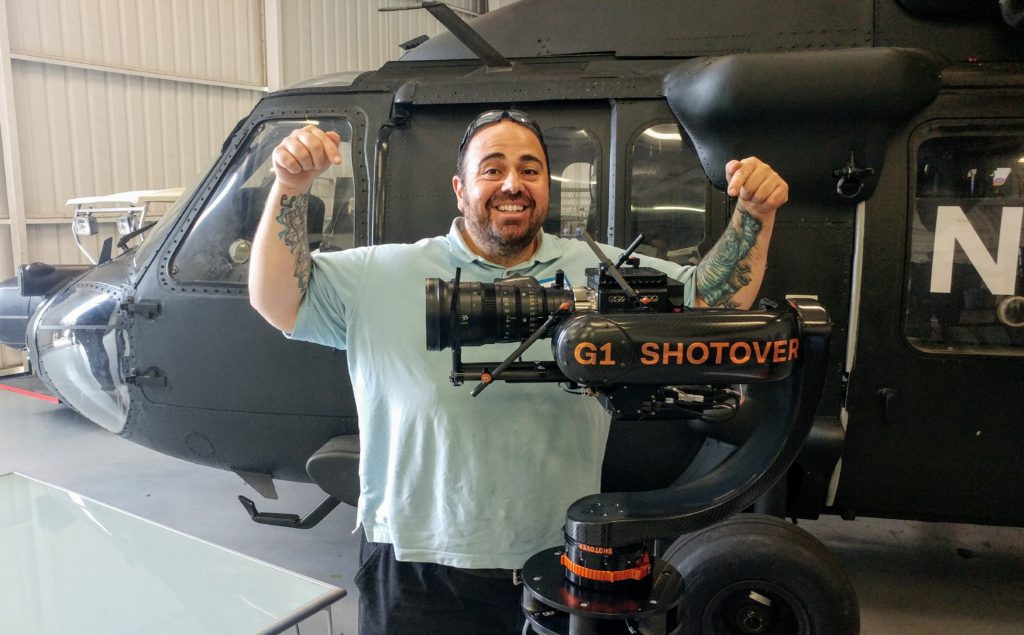
How does where you live influence how and what you make, and how do you think LA currently effects your work and process?
LA traffic, friend or foe? If you’re sitting on a train, or a bus, it definitely gives you time to relax your mind, and think creatively. When you are late to work, and riding a motorcycle, your entire focus is going to be on splitting Lanes on the freeway.
Ironically, I think a good performance can come from anything and anywhere. In terms of the pool of ideas to connect back into a script, Los Angeles definitely has diversity amongst its population. I tend to stick to stories that have an element of Truth to them. In that, I see how people interact with the world around them, and also with each other in LA. When reading a scenario in a script, I always think of how somebody in the real world in Los Angeles would react to that. Aren’t the circumstances believable? With the characters performance be believable given that situation in LA?
It is said that there are only six stories. Maybe twelve. It’s all been done before. What do you do to keep it fresh? Is there anything that you can do to subvert the process to keep it original?
There is a car accident. Ask 12 people what happened, and you’ll get 12 different stories. Why are they going from point A to point B? What happens along the way, and before the accident? How do other people interact with the drivers of the cars? Is the mood comedic, or dramatic?
When I said accident, you were assuming that there was some horrendous mangled heap of metal in the middle of the road. What if it was two 5 year old children who had crashed bumpers with their toys? It’s all about perception, taking the script, and interpreting it. How would Gene Hackman’s Hossiers Coach character react to being attacked by five puppies at a pet adoption event? I hope you see that in the examples above, I just gave you two totally different, and unexpected, storylines.
We get noticed because of our successes – but we create them on the back of our failures. What failures (of your own) have you been able to learn from? How did they change you and your process?
To me, failure is the result of a lack of overall chemistry. The short answer is to find people that you get along with, so that you can work with together towards achieving a common goal.
Failure is a step in the wrong direction. Whoever you work with, your destination must be mutual, first and foremost. Your path to get there is up for interpretation. But mainly, you have to listen to your crew. I remember working as a Steadicam Operator on a short film about 6 years ago. The director wanted a very specific shot that was impossible to do with the gear and equipment available at that time.
Long story short, the director didn’t discuss the shot with the DP. Also, the director didn’t trust or believe in the equipment’s ability, nor the combined experience of the crew. That specific director failed because of his lack of communication, planning, and delegation of duties.
I often say one of the best methods of producing is “engineering serendipity.” Have you encountered serendipity in your work and do you think there is anything that you can do to bring more of it into your creative process? Why or why not, and if so, what is it that you and your team can do?
There’s a simple solution. I learned something valuable from trying too hard to make something work with people who weren’t on the same page so to speak. You have to do what you do; and do it in your own style, and in your own way of thinking. You will attract people around you who work in that same modality. Eventually, you and the people you work with will form a homogeneous unit that is able to achieve the same objective.
Films spring from the creative process – sometimes most dramatically in the editing process. It’s often really hard to tell the difference between what we desired and what we achieved. How have you encountered this and how do you move through it?
The director is the director. Only get the shots you need. I hate it when somebody says “get coverage for the editor.” You’re basically giving the editor the directing credit at that point, and letting him or her choose what to put in the final project.
Use a storyboard, and base your shot list off of that. That way there is no room for the editor to become the director. Once you sway off of the shot list and the storyboard, you basically have a different movie. I strongly believe that the camera needs to tell the story just as much as the actor/actress performance. Because of that, you absolutely have to storyboard. More importantly, storyboarding is the visual tool you can show the entire crew to represent what you as the director are thinking.
When do you know a script is ready to shoot, and what is your process of getting it there?
I need to know that from a common sense perspective, questions are answered. Is there resolution or not? Basically, it boils down to a feeling of completion at the end of the script. If it’s not, I will bring up the issue with the writer, and let him or her tie up the loose end/s.
Some actors have “it” and sometimes they need something to make “it” pop. You’ve spotted that “it” and captured “it”. What is “it” and how do you find “it”?
“It” is when an actor’s performance is believable. Plain and simple. The way to find “it” is through analogies. In the casting process, you hire an actor because you believe that he or she can make the character in The Script come to life. More importantly, you believe that he or she can do this in such a way that is in line with what you envisioned when first reading the script.
You don’t know how many times I’ve said to an actor something crazy like “play it like you are Gene Hackman in Hoosiers meets John Belushi in Animal House discovering five puppies peeing on a basketball.”
Why did you want to be a Director? Why would you want to always have 100 decisions in front of you and have over 100 people waiting on your answer?
If you do your homework, and pre production, you shouldn’t have a hundred decisions to make. With a plan, and clear communication, there’s no reason for anybody having to wait on you. As the Director, you will need to convey your thoughts to the first ad, the cinematographer, and the producer primarily. Secondarily, would be each of the other department heads such as vanities, production design, transportation, etc. Then let each department do what they do best in terms of planning for the next day, scheduling, etc. WITH the producers.
Most problems that happen on set are caused by inexperienced producers from my experience. Or, this could also happen because someone was unable to communicate effectively with a producer.
Also, I always say that a strong 1st AD will always be the Nexus of communication on your set. He or she should have a detailed and informative set of instructions of how the day is supposed to go.
IF a problem arises, call a meeting. 4 people need to be present.
You need the 1st AD there, because he or she is the Nexus of communication to relay the info to the rest of the crew.
The person who has and/or pointed out the problem.
The Director, so that he or she can suggest a possible solution. Or, be able to call in another person on the crew for their suggestion, experience, expertise.
You need a producer there, to figure out if the solution is within budget.
There are hundreds of times when things haven’t gone as planned on asset I’ve been on. Believe me, there is always a work around, or a way of shooting something else in the meantime while the problem is fixed.
How does your family feel about being a director? Explain.
Love it! My dad wanted me to be a Senator. Directing is the next best thing. 😉 My whole family is/was in the industry.
Film, perhaps more so than any other popular art form, is the compromise between art and commerce. How has your art been shaped by both the money you have had or not had? Do you create with budget limitations in mind?
Film it on a cell phone! There’s no excuse for not filming something. Even on a $0 budget, your ideas and contributions to the world must be made. Post it up on YouTube. You might attract the attention of someone with money to spend on your project. Hint hint.
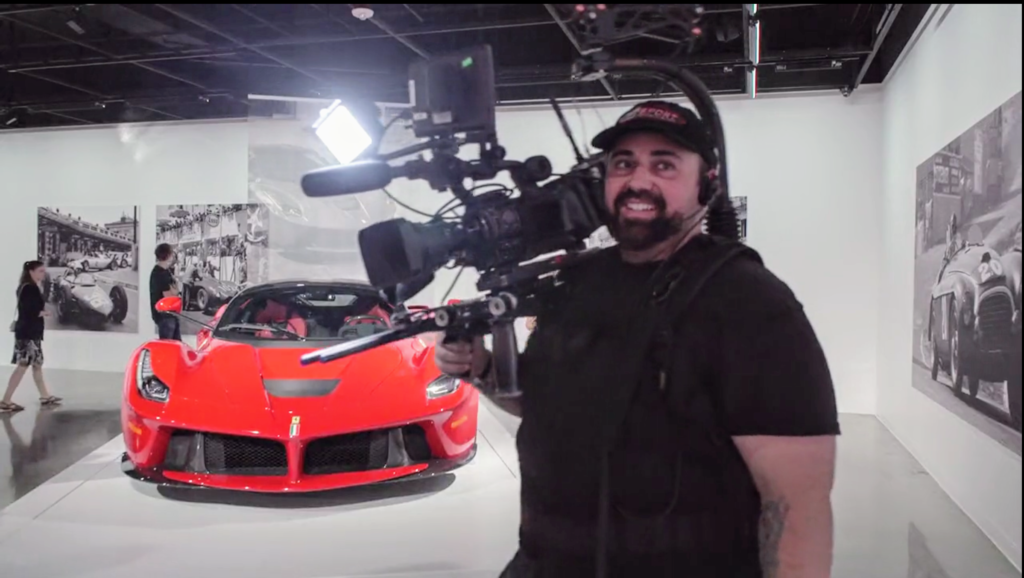
Is the film business fair? Why or why not? How do you make the apparatus work for you?
The most important thing to remember is that you have to stick to your own personality. Don’t ever try to copy or imitate anyone, or anyone’s Style. Do your own thing, and you will always come out ahead. In that respect, I’ve turned down tons of projects because I felt like I wasn’t a good fit. I won’t change who I am to fit into someone else’s agenda. Doing my own thing, that is why I am successful.
Is it the Director’s responsibility to find and develop your audience? Why do you feel that way? How will you collaborate with your audience, and how won’t you?
I disagree. I say make the film that you want to make. That project’s specific audience will develop based on your project. Think of how many directors have different audiences for the different movies they have created. In Spielberg’s case, his Jaws audience is much different than the Schindler’s List audience, wouldn’t you agree?
Let’s say in the case of Ridley Scott. He has a very specific audience. He has chosen to pigeonhole himself in that way. Remember, you are the director. You’re not the script writer. Those two positions are totally different. If you choose to collaborate with your “built-in” audience, then you are limiting yourself to the projects that you will Direct.
What do audiences want? And is it the Director’s role to worry about that?
Some audiences want originality. Others want tried-and-true movies that are duplicates of the ones they’ve seen before. It’s Star Wars, but with different characters. If you are chosen to direct a trilogy, there should be some consistency in the style between all three movies. To think that part of the directing process is to figure out what a specific audience would want to see based on the script would mean that you are no longer directing. You’re just a name attached to a project at that point. Remember, do the project in your own style, and your audience will find you.
Is it possible to sell out? What would that mean to you and would you like it to happen or not? What do you do to encourage the professional approach you want?
People sell out for the money. It’s in the definition of terms of “sell-out.” A director who does this probably won’t work for very much longer. I believe in truth and Purity. You have to be true to yourself, and you have to align yourself with things that are the best for you. At some point, you’ll be known in town for a certain Style. Sometimes this could also be a few different styles. But if somebody hires you, then wants to change your style to something that you wouldn’t normally do, and or you disagree with, then don’t take the project. It’s that simple.
How do you want others to see you as a professional? Explain.
It’s all about experience. As a professional, I would like to think that people see me as a person who can have the ability to deal with any situation, and stay cool under pressure. You know what needs to be done, and you know how to do it.
What have you learned that others might not know about what it takes to be a Director?
I always have a really strong first ad to relay to the crew what is happening, and what needs to happen next. I like a good first ad who calls a meeting before every setup, to discuss what’s immediately happening next.
In your experience, what is the most important thing a budding Director should know?
You have to surround yourself with people who know what they are doing. They are the ones who are going to carry out your vision. Also, and probably more importantly, is to work every position in 5 departments. Work as a PA! You need to know all the BS that happens behind the scenes, all the little small fires that happen. You have to work grip to know how to move a camera, and shape a light. You have to work electric, to know the process involved in lighting a set. You have to work camera Department to know where to place the camera. You have to work production design to know what your set should look like, and how the surroundings can affect the story. You hire the vanities because they make your talent look pretty. You higher sound because you need to be able to hear what your talent is saying.
What advice would you give to someone who wanted to have a life creating film?
Don’t do it for the money. Most people who work in the industry have really rough hours, and very little family time. There is a line in the song Africa by Toto.”…frightened of this thing that I’ve become.” The piano player who wrote the song was referring to the fact that because he was always on the road with the band, he didn’t have time for his family.
What role have film festivals played in your life so far? Why are they necessary? How do you get the most out of them?
Huge!! The film festivals are basically your Proving Ground. It’s the best feedback you can get on your style. The more your projects that get submitted to film festivals, and screened, and award-winning, the better. I mean think about it. If you are submitting a hundred projects, and none of them gets screened, or win any awards, that should tell you something.
Now that control and scarcity don’t define the Entertainment Economy, but superabundance & access do, how does that change things for creators? There are 45,000 films generated globally annually, and the largest consumption market in the world – the US – currently consumes only 1% of the output. Recognizing that, are you changing the way you work, changing what you create? How? Why? Or why not?
I could give a hoot. I think it’s more about making the movies that you want to make. Sometimes your audience can be two people. Is that successful? What if you made a movie about your daughter, and only showed it to your wife and your son? If you’re a director looking to compete on a global scale, maybe directing isn’t the right occupation for you. You make movies because you want to tell a story.
Do me a favor. Take a story like The Giving Tree, and tell it to Five People You Know. But each time, change the genre. Comedy, horror, romantic, Sci Fi, Drama. Did you make someone laugh? Did you make them cry? Did you make them think? That’s all that matters.
Are you on social media and do you use it in your work? Why or why not?
Hell yes! Facebook is a great way to connect with the world. Ideas are all over the place, and Facebook opens your eyes to things that you wouldn’t normally come in contact with. Guilty pleasure, I like cruising through funny memes and photos. it’s a great break from reality.
With the abundance of viewing outlets ( TVs, phones, tablets, computers) and the accessibility of screens (the home, the bus stop, the elevator, the taxi cab), as a creator how does this effect the stories you tell and how you tell them?
Definitely. Somebody watching a movie on a cell phone has a completely different experience than watching on the TV at a department store. Your wide-angle shots seem to carry less impact the smaller the image is. Also, the cuts in editing must accommodate your viewing device. For instance, if you’re screaming something at a movie theater, you know your audience is pretty much locked in there for the duration of the project. But if somebody is watching a project on their cell phone, you might have 10 good seconds before they may decide to watch something else.
If there is one or more things you think would make the film industry better, what would it be?
Get rid of your ego. Drink some prune juice and let the s*** go. Each and every person on the crew is important. No one should ever be above or below you.
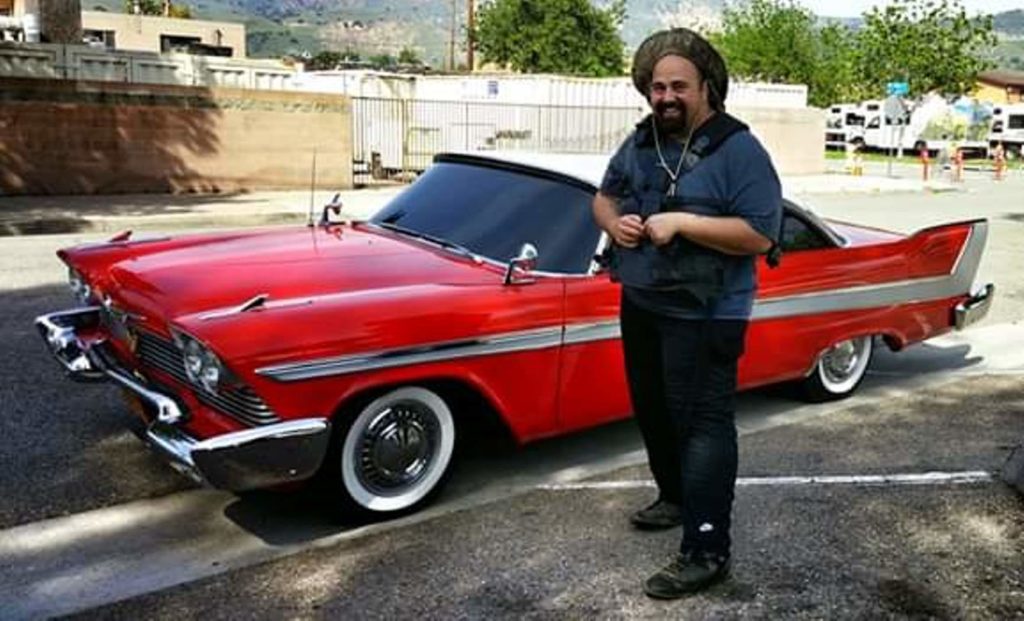
Do Directors have any responsibility to culture? Do you feel that being a creative person requires that you give back or tell a particular story or not do something else? Why or why not?
As a society, especially in the United States, I think we have become too politically correct.
What makes a film great for you? Are there certain qualities that make a film better for you?
John Ritter said it best. To paraphrase, a great film is one that pulls at the strings that connect us all. Sometimes that makes us cry, or makes us laugh. If film can connect the audience, then it is great.
What films have been the most inspiring or influential to you and why?
There are way too many to list. You could name any movie from history, and I could tell you how it has influenced me or inspired me. But on a side note, making some old 8 millimeter films of my father when I was a child definitely stands out. The process of doing that influenced me because I learned how to tell a story. It also taught me how to use the camera to tell the story as well. There are a lot of Secrets and psychological tricks that I use in my own directing Style which came from the films I watched throughout my life. They are like tools in the toolbox. And I would use them, the right tool for the right job, given the specific situation.
Who do you look up to as a director and follow Director?
You’d laugh, I actually look up to cinematographers more, guys like Vittorio Storaro, Gordon Willis and Emmanuel Lubezki. It’s the lighting that creates the mood, and the camera movement that tells the story. I tend to be inspired by specific scenes of movies , not necessarily the entire movie. But don’t get me wrong, there are a lot of directors whose particular Styles I appreciate. It’s that wide, medium, close up go to standard that almost every audience wants to see like Alfred Hitchcock. And how can you not mention those crazy wide establishing shots by Steven Spielberg? The car scene in Children of Men is one of the best!
When you get angry at a movie, what sets you off? Are there common qualities in cinema today that you dislike? Is there something you try to subvert or avoid or rebel against in your work?
Common sense describes it all. There are countless scenes, or specific storylines, that just don’t work. Sometimes it could be an actor who was miscast in a roll.
What made you feel good about your role in the creation of CAGED?
We did it! Ed and I created a masterpiece that has won seven Awards come and has been nominated for six others.
What were the strengths and weaknesses of the production from CAGED?
There are a lot on each side. One of the better strengths was the cast. These were all seasoned Pros. I gave them very little Direction. My style with them was very much along the lines of ,” here is what is in the script. I want you to get from point A to point B in whatever way you want to as you, not the character.” I was a firm believer in letting the camera roll after the scene as well. One good example of this is when Karimah is in the kitchen. The rain was another huge strength. We basically blasted the side of the house with the hose, creating that perfect sheeting action against the window.
There’s one weakness which was a big deal, but it wasn’t a big deal to most. In transferring the files, somehow the image was cropped, creating less headspace. It still works, but I would have liked to see that extra little bit of room above our actress heads in the wide shots, and in some of the mediums. Something else I have to point out, is that a lot of times, I would step in and DP. There was something very specific that I wanted, that I just had to do myself. In that respect, I definitely pulled a Soderbergh. He would rehearse and rehearse, then do the shot himself.
How did your love for movies get sparked and what can we — as a community — do to help others discover a similar pleasure?
Visiting the set of Steven Spielberg’s 1941 as a child has to be one of my best memories! In film schools today, I wish more of the students had a chance to visit actual working sets of some of the bigger budget projects. Because of NDA, and social media fear, a lot of times there are no set visits at all. One way to work around this would be to have the Freshman students visit the set of the senior students. Or even better, have the Freshman visit the master thesis students sets. That way, the freshmen would get a chance to see how the whole filmmaking process happens.
What sort of person is going to love CAGED?
Caged is like the gossip side of Sex in the City, mixed with the Intrigue of Scandal, wrapped up in the romance of Brokeback Mountain.
When you screened CAGED for the first time, what did you want the audience to be thinking about in the car as they drive home after this show?
The actors performances. So strong!
How did the audience react to the film at the initial screening?
Tons of applause.
What was your happiest cinematic moment in the making of CAGED?
Definitely the slider shot with Gavin and Trey on the back patio.
What was the scariest?
When the sun started coming up, realizing that we would need another day of pickups.
What would you have done differently if you could and why?
Everything happens for a reason, and it all came out great!
How has the process of making “CAGED” changed you as a Director?
Be loyal to the script, and do it in a tasteful way. I’m really glad how the bedroom scene turned out. There’s a lot of power of suggestion type stuff. But we did it without getting graphic. I remember talking to Ed about the psychology of the scene, and how I wanted to shoot it. Lots of subliminal messages with the blinds, the lighting, Etc.
What do you want to be when you grow up?
I’d love to live as long as humanly possible, and in the best shape of my life. If I had the means to do so, I would talk to experts in the field, and dedicate my life to health and spirituality.
If someone was going to make your life into a movie, who would play you?
Jack Black. If he were still alive, definitely John Belushi!
If you had a magic wand, what wish would you grant yourself and why?
I’d love to meet the woman of my dreams, and have a deep conversation about life, the universe, and our crazy childhoods. Ha!
